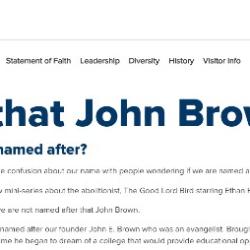The paper does a daily online poll question. Yesterday's concerned President Bush's still-vague proposals for privatizing Social Security:
"Do you favor individual investment accounts as a part of Social Security?"
The response — 42% yes; 47% no; 12% uncertain — was somewhat hopeful, but I still found the question less than helpful, prompting this e-mail suggesting future poll questions on the topic:
As a followup to today's question on Social Security, how about these:
* Are you aware that Social Security is currently running a surplus?
* Are you aware that the Social Security Administration trustees report that the program is in solid financial health through at least 2042?
* Are you aware that this 37-years-from-now "crisis" is based on unhistorically pessimistic assumptions about economic growth that, if they prove to be true, would make investments in private accounts a disastrous money-loser?
* Do you ever wonder why newspapers use the word "crisis" to discuss a program whose health is guaranteed for the next 37 years?
* If Social Security, now in surplus and fiscally sound until 2042, constitutes a "crisis," then what word would be appropriate to describe the deficit in the general fund, which — despite massive infusions from the Social Security surplus — would still be in the red even if all nondefense discretionary spending were completely eliminated?
* Would "fubarpocalyptic" be a strong enough word?
* Do you ever wonder why newspapers run more stories discussing a potential 37-years-off crisis than they do discussing the fubarpocalypse now upon us?
Today, the paper runs this article from the AP's Leigh Strope:
The success of President Bush's push to remake Social Security depends on convincing the public that the system is "heading for an iceberg," according to a White House strategy e-mail that makes the case for cutting benefits promised for the future. …
That strategy memo weirdly parallels the latest column from Paul Krugman — the only difference being that Krugman thinks that convincing the public of an imaginary crisis is a Bad Thing. For the White House, it is "one of the most important conservative undertakings of modern times."
















